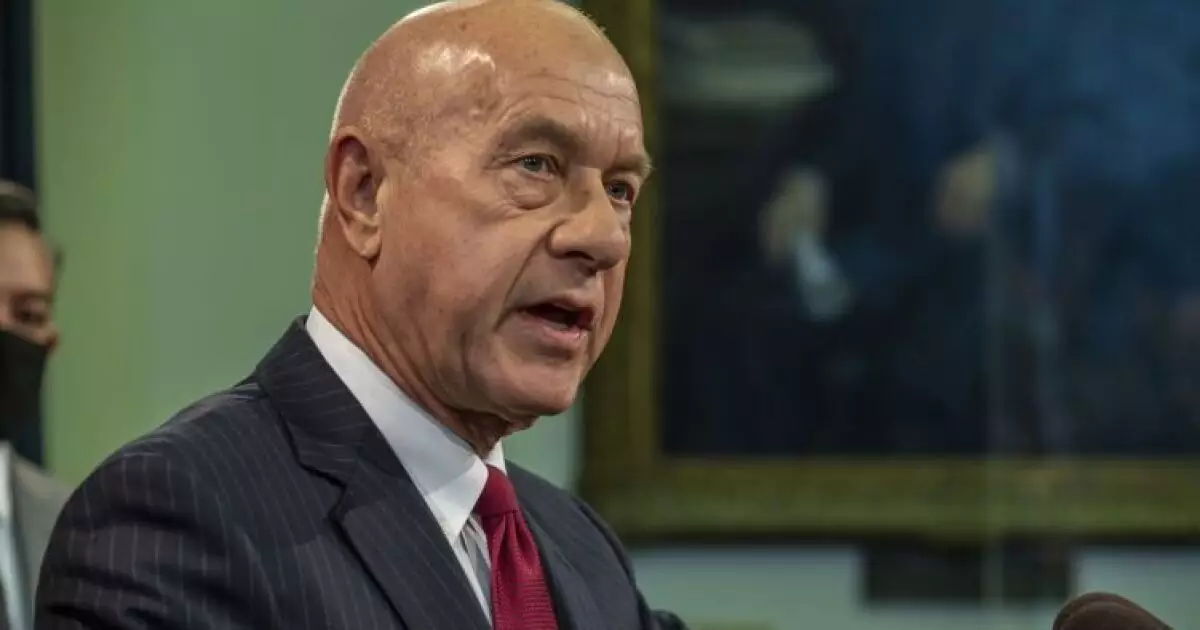Houston is at a financial crossroads, with Mayor John Whitmire’s recent announcement highlighting the city’s precarious situation. The agreement born from a lawsuit demanding at least $100 million annually for drainage and road repairs signals a critical shift in how Houston operates financially. While the intention behind this agreement is to address long-standing infrastructure issues, it feels more like a temporary fix rather than a sustainable solution.
With projections indicating that Houston could face a structural budget deficit as severe as $320 million, the reality of a city grappling with deteriorating infrastructure is alarming. Residents should be outraged that the legal system is the catalyst for change rather than proactive governance. Such a reactive approach underscores a neglect to address underlying issues directly, rendering this agreement a mere stopgap measure that may only aggravate the city’s financial woes in the years to come.
An Unorthodox Path to Funding
It’s important to analyze the agreed-upon allocation of property tax revenue, which will see an increase from 57% to 100% by fiscal 2028. While on the surface it appears to be a victory for the city, this funding strategy raises red flags about Houston’s fiscal priorities. The initial allocation was already insufficient; pushing the city’s tax revenues toward just one area of need feels more like an act of desperation than calculated governance.
Moreover, Mayor Whitmire’s intent to revamp spending following an Ernst & Young efficiency report might offer some hope. However, the efficacy of such measures often comes into question, especially when voters see their tax dollars funneled into potentially shortsighted agreements. The potential growth of the city’s financial obligations could jeopardize other essential services. The shift in blame toward external factors, such as the lawsuit, allows city officials to avoid confronting the deeper managerial deficiencies that lie in Houston’s budgeting practices.
A Fleeting Stability Amidst Deteriorating Infrastructure
The city council expressed a positive outlook on the agreement, yet optimism should be tempered with caution. Mayor Pro Tem Martha Castex-Tatum rightly pointed out that Houston’s aging infrastructure is no secret. This is a problem that has been allowed to fester for too long, underscoring a failure in leadership to provide long-term fixes.
Even as Houston’s budget balance fluctuates alarming close to dangerous lows, it’s not enough to merely soothe the symptoms of a broken system with one-time allocations. Fitch Ratings and S&P Global Ratings have already indicated that Houston’s financial health is entering dangerous waters, yet there seems to be a lack of urgency in addressing these systemic issues head-on.
The Bigger Picture: Shortcuts Over Solutions
Houston’s current predicament begs the question: are we willing to be content with a temporary truce rather than seeking lasting solutions? The plan to allocate Harris County Toll Road Authority revenue to assist in public safety amid these financial struggles could end up being misleading. While it sounds beneficial, if past performance is anything to go by, there’s skepticism about whether these funds will genuinely alleviate the suffering of Houston’s infrastructure or simply serve as the next band-aid on a gaping wound.
In the end, while the city may breathe a sigh of relief with this new agreement, anyone paying attention should wonder—are we merely delaying the inevitable or can we muster the political will to undertake the substantial and necessary reforms that Houston’s infrastructure demands?

